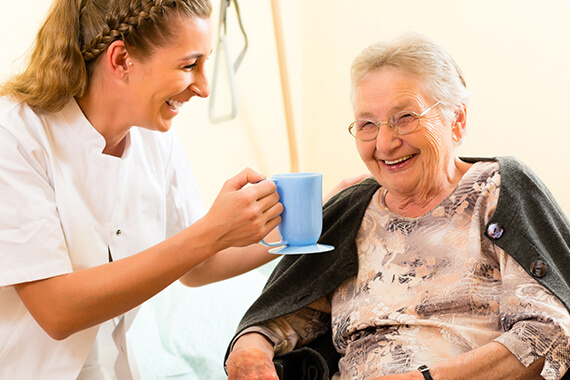Our Services
Next Care Hospice
Services We Offer

Routine Home Care
Routine home care includes regularly scheduled visits to address the physical, emotional and spiritual needs of hospice patients and their caregivers. The hospice team travels to the patient's home, whether that is a traditional residence, nursing home, assisted living or any place the patient calls home.
The hospice team is always available, but routine care is not round-the-clock nursing care at home. The primary caregiver is usually a family member trained by the hospice to provide much of the daily hands-on care.

Continuous Home Care
Continuous home care (CHC) is one of the four levels of hospice care in the Medicare Hospice Benefit and required by the Medicare hospice regulations. The regulatory definition of continuous home care is meant to include predominately nursing care, covered for at least 8 hours, and up to 24 hours in a 24- hour period, beginning and ending at midnight. Either homemaker or hospice aide services or both may be covered on a 24-hour continuous basis during periods of crisis, but the care must be predominantly nursing care.
The purpose of continuous home care is to achieve palliation and management of acute medical symptoms.

Inpatient Care
As with continuous care, inpatient care is considered short term and would be discontinued once a patient’s symptoms were under control and they were comfortable. If the patient was admitted to an inpatient unit, they may then be discharged back home.
At times, a hospice patient may require inpatient care when their symptoms worsen or can no longer be managed successfully at home. When pain or symptoms cannot be controlled with routine hospice home care, the patient will require extra assistance or more advanced medical attention until the symptoms subside.

Respite Care
Respite care is short-term relief for in-home hospice caregivers. Medicare benefits pay for patient transport and up to five consecutive days of inpatient care at a Medicare-approved nursing facility or hospital. You can get respite care more than once, but only on an occasional basis.
Hospice respite care enables the caregiver to rest and recover from the demands of daily in-home care.
Respite care is also appropriate when a patient’s medical condition warrants a short-term inpatient stay for pain or other symptoms that cannot be managed at home.
